- Administrator
- Albums and Singles

This album is about resonance: on Saman, which means "Together," Hildur melts her voice with her cello, connecting the two instruments together. The result is a highly involving and moving album, recorded, mixed and mastered in Berlin. Hildur's sylph-like vocals contrast beautifully with rich cello tones, resolving the tension between light and dark to produce a unique listening experience.
More information can be found here.
Read More
- Administrator
- Albums and Singles
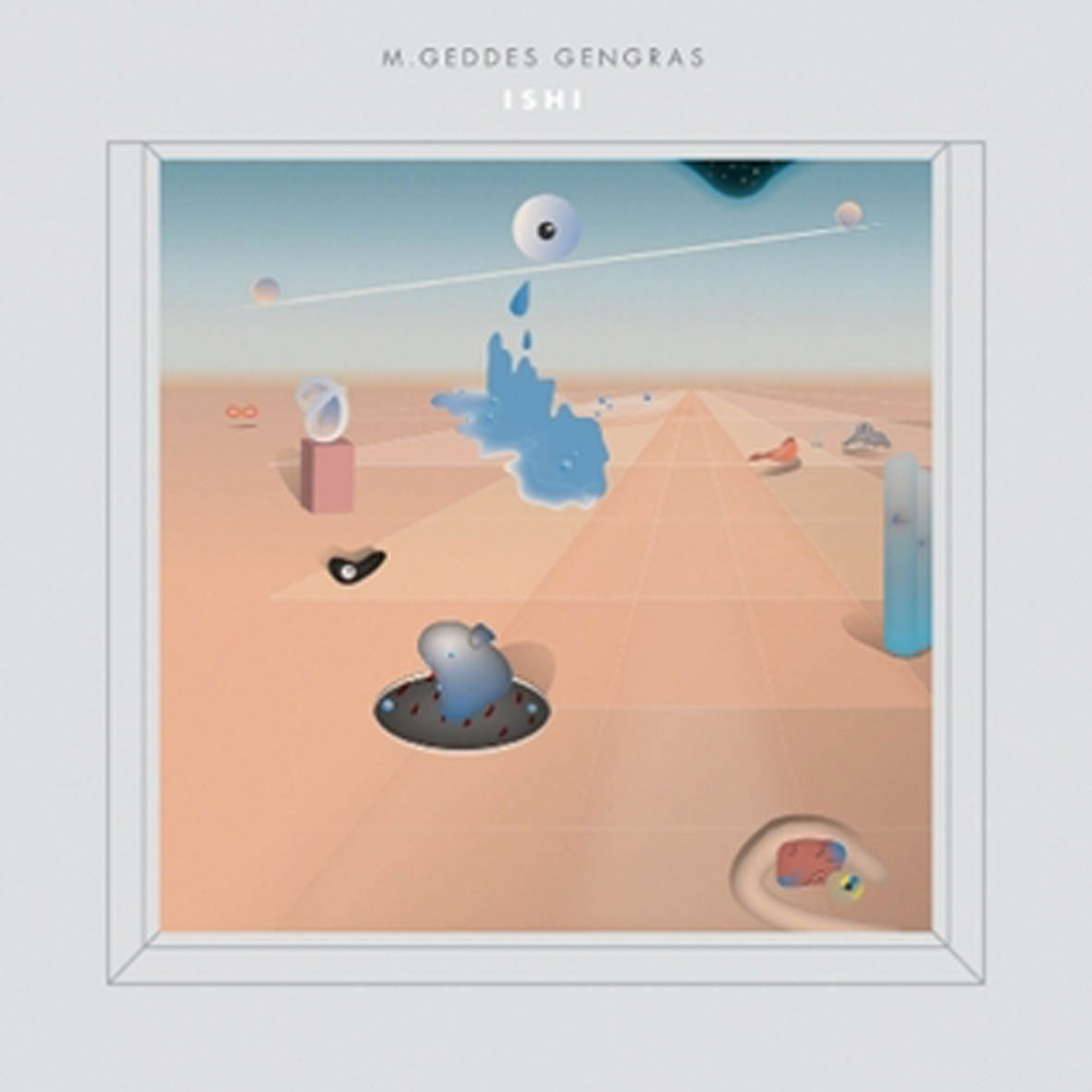 Last year's Collected Works Vol. I – The Moog Years was one of my favorite albums in recent memory, so I was very much looking forward to this suite of entirely new modular synth pieces from Gengras.  Naturally, my anticipation turned out to be justified, but the meditative, pastoral Ishi has a radically different feel than its moodier, more haunting predecessor.  While I happen to vastly prefer moodiness to serenity, Geddes' compositional talents and intuitive understanding of both space and pacing ensure that Ishi is still a characteristically enjoyable effort.
Last year's Collected Works Vol. I – The Moog Years was one of my favorite albums in recent memory, so I was very much looking forward to this suite of entirely new modular synth pieces from Gengras.  Naturally, my anticipation turned out to be justified, but the meditative, pastoral Ishi has a radically different feel than its moodier, more haunting predecessor.  While I happen to vastly prefer moodiness to serenity, Geddes' compositional talents and intuitive understanding of both space and pacing ensure that Ishi is still a characteristically enjoyable effort.
All other qualities aside, Ishi is likely to be the most conceptually ambitious modular synth album that I will ever hear, as it takes its name from "The Last Wild Indian," who was "discovered" in 1911.  That, however, was only the starting point for Gengras' inspiration, as Ishi’s story got him thinking about the gulf between our world and life on the fringes of it.  In essence, Ishi is an album about "the man who walks into our world understanding none of it but forced to live in it regardless."  Importantly, that is not abstraction, but a description of actual people from Gengras' actual life.  Given that (and Ishi's own nightmarish experience of losing absolutely everyone he knew), I would have expected this album to be a bit of a brooding and melancholy effort, but Geddes surprisingly went in the complete opposite direction: Ishi is a rather transcendent, celestial, and turbulence-free affair from start to finish.
It is also a rather brief one, consisting of just three songs and clocking in around 35 minutes.  The comparatively brief title piece opens the album with a dreamy, blissful thrum of lush swells enlivened by a bit of buried stuttering amidst the billowing chords.  The following "Passage" does not overtly stray terribly far from that template at all, but it is significantly better (and longer).  A lot of that success is due to the added length, as "Ishi" ends before it has a chance to become fully absorbing–being nearly twice as long, "Passage" does not have that problem.  There are some other notable enhancements to the formula as well though, as "Passage" is also considerably more vibrant, embellishing its heavenly reverie with layers of dynamically undulating, twinkling, and flanging synthesizer.  Also, its bliss-ocean is not entirely pure, as it is muddied by some welcome hints of spacey, retro-futurism.
The closing 18-minute epic "Threshold," however, brings the album unambiguously back to untroubled, oceanic synth bliss, evoking flickering shafts of sunlight amidst a sky filled with slow-moving clouds (or something similarly poetic).  In any case, it is quite pleasant and immersive, though the subtly more divergent "Passage" still feels like the album’s clear zenith.  That said, I cannot emphasize enough how similar Ishi’s three pieces all feel to one another–this album truly is just three variations of "warm swells of drifting bliss."  That is not necessarily a bad thing, as it makes for a well-sequenced and connected whole, but it makes differences between the individual pieces feel a bit beside the point.
All of that, of course, adds up to yet another solid effort by Gengras, but a comparatively minor one that feels less distinctive than much of his other recent work.  While Collected Works had an undeniable advantage in gradually taking shape over a few years of cassette releases, I do not think Ishi suffers from being rushed or from a regression or weakness of Gengras' compositional talents.  Geddes did not make any bad or false moves-he just skillfully made an unusually radiant and edgeless album that is probably exactly the album he wanted to make.  I am still a bit troubled by Ishi's lack of distictiveness, but I suspect that Gengras made a conscious effort to work as purely and egolessly as possible on this album.  Even if I am wrong, it certainly sounds like he did.  Of course, it is always dangerous to hypothesize about artist's motives and methods, so the real conclusion here is this: Ishi is a lush and pleasant album, but those looking for something deeper than that should investigate some of Gengras' previous work instead.
 
Read More
- Administrator
- Albums and Singles
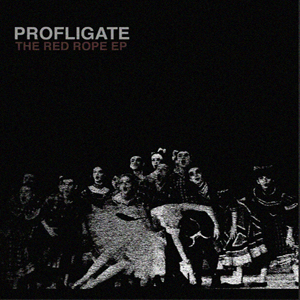
Drawing influences from '80s pop, '90s techno, and a bit of more experimental sounds, Profilgate's Noah Anthony manages to be one of those rare electronic-heavy records that is extremely difficult to pin-down as far as time period goes. These three songs encompass sounds from four decades of electronic music, with specific moments that fit into a specific style or genre, but the whole is a much different than the individual parts.
"From All Sides" is rather skeletal introduction, with its rudimentary kick/snare beat lead and fuzzy bass line accompanied by a simple synth melody and a few noisy stabs to keep things fresh and diverse.Vocals are present, but low and restrained, giving a darker, mysterious edge to the otherwise relatively pop-friendly mix."Annihilated" comes together with a slightly less catchy feel, focusing more on a straight ahead techno thump emphasizing rhythm over melody and the employment of various weird noises and the bass line, which is memorable if maybe a bit more dissonant in its overall tone.
The flip side is taken up with the 9 minute "The Red Rope Again," which leads off with a dense, rapid beat that nicely contrasts the overall more subdued mix.A slow progression of analog synth strings might channel 1980s electro, but the beat and production is far more contemporary.The rhythm stays constant for the entire piece, but everything around it evolves and shifts over the duration, with the vocals again kept low and tasteful in the mix.
With synth pop melodies, club friendly techno rhythms and modern day experimental electronic production, Profilgate is a simultaneously nostalgic, yet contemporary artist that sounds like no other that I can think of.Despite the solid 4/4 beat that permeates these three songs, there is a far more introspective sound that is what sets Anthony's project apart, and it is this clashing of style and approach that makes The Red Rope EP so compelling.
samples:
 
Read More
- Administrator
- Albums and Singles
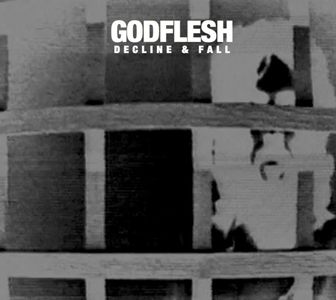 After what almost seemed like a begrudging festival reunion to play Streetcleaner, it was exciting to see that the pieces were coming together for a true Godflesh reunion, and even more so when the likelihood of new material appearing got higher and higher. Unexpectedly announced as a precursor to the upcoming full-length album, Decline & Fall sounds as if it could have been recorded around 1993 through 1995, because it has such archetypical Godflesh sound, which is reassuring to say the least.
After what almost seemed like a begrudging festival reunion to play Streetcleaner, it was exciting to see that the pieces were coming together for a true Godflesh reunion, and even more so when the likelihood of new material appearing got higher and higher. Unexpectedly announced as a precursor to the upcoming full-length album, Decline & Fall sounds as if it could have been recorded around 1993 through 1995, because it has such archetypical Godflesh sound, which is reassuring to say the least.
These four songs (none of which are expected to appear on A World Lit Only by Fire this fall) rigidly stick to that early Godflesh template of Justin Broadrick's screeching, barely controlled guitar harmonics, chugging riffs, Ben Green's blown speaker-cabinet bass and the rigid, unflinching percussion of a drum machine (which sounds like it is still the venerable Alesis SR-16).There are no surprises or unexpected diversions to be heard, likely because Broadrick has compartmentalized all of his favorite genres into their own specific projects.Godflesh is pretty much officially reserved now for just industrial tinged metal sounds.
I have mixed feelings about this, because I find many of my favorite Godflesh songs to be the ones that push out of those boundaries, like the (post)punk-y Tiny Tears EP, the techno-tinged Slavestate and the glorious untitled bonus song hidden at the end of Hymns.At the same time, though, anyone who followed Godflesh knows the identity crisis that started happening at the hip-hop influenced Songs of Love and Hate into the dour electronics of Us and Them (which I feel, while not perfect, is very underrated) and the straight forward, bland metal of Hymns lead to diminishing returns.
Which is why I pegged Decline & Fall as sounding specifically from that aforementioned timeline, because it was then their sound was most consistent."Ringer" is not far removed from the rock tinged from Selfless, but lacking that sterile, clinical sheen that at first turned me away, and then endeared that record to me.It is a bit less depressive than Selfless, but darker than Messiah and its prototypical groove direction, channeling the aggression that Broadrick had been holding back on the Jesu records.
The hip-hop drum machine shuffle blended with the idiosyncratic guitar melodies and barked/growled vocals of "Dogbite" resemble a further refinement to the sound of Pure, but livelier and more energetic in comparison, and more than a passing resemblance to "Mothra.""Playing with Fire," on the other hand, sticks with the bleak, depressive Godflesh sound that arose heavily on Us and Them, but without the electronics, and an overall arrangement more consistent with the Selfless era and a good pairing of Broadrick's singing/screaming vocal dynamic.
The title song is perhaps where the album stands out the most unique: a frenetic jerky rhythm that bounces between slow to fast with Broadrick’s guttural vocals.The voice sounds like a conscious attempt for a Streetcleaner throwback, but the music itself is harder to pin down, with a constantly changing tempo and melodic passages, but sounds definitively like Godflesh.Both the Japanese Daymare pressing and the digital download direct from Avalanche include two bonus dub remixes, one for "Playing with Fire" and the other being "Ringer".Like other mixes from Broadrick, he sticks with the classic definition of a dub mix, stripping back the guitar to emphasize the drums and bass, extra effects on both and minimized vocals.Neither are essential, but they do give a different perspective on the songs.
The most striking aspect of Decline & Fall is how Godflesh-y the whole thing feels.I was expecting a trajectory more like Broadrick's long-time influence Swans' return after a similarly long absence peppered with side projects, where finding their specific identity took a bit of time.This EP does not have any overt moments that sound like Jesu, or Pale Sketcher, or JK Flesh, or [insert project here]: it is purely a distillation of the early days of Godflesh.If this reactivation is for the long term, as it seems to be, I am not sure how this strictly compartmentalized approach will be.For the span of an EP it works wonderfully, and it is reassuring that Broadrick and Green have not simply tried to capitalize on their past glories by resurrecting the name.However, my concerns are how this very specific adherence to their old sound will be over the span of one or many full-length albums.Given who it is, and how much of a fan I am of their entire discography, I have no problem giving them the benefit of the doubt though.
samples:
 
Read More
- Administrator
- Albums and Singles
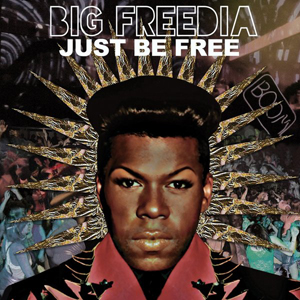 As elements of New Orleans Bounce music has been slowly drifting outside of its largely southern borders, Big Freedia, also known as Freddie Ross, has become the unofficial ambassador for the genre, making various high profile TV appearances and rather memorable live performances.  Just Be Free is his first true full-length album, and has the polish that could gain new fans, but never strays far from his roots and manages to stay undeniably fun.
As elements of New Orleans Bounce music has been slowly drifting outside of its largely southern borders, Big Freedia, also known as Freddie Ross, has become the unofficial ambassador for the genre, making various high profile TV appearances and rather memorable live performances.  Just Be Free is his first true full-length album, and has the polish that could gain new fans, but never strays far from his roots and manages to stay undeniably fun.
The bounce music scene is an insular one to say the least.Largely centered in New Orleans, performers stick to the same sampled loops ("Drag Rap" by The Showboys), a repetitive, shouting vocal style based heavily in repetition and delay, and a lyrical focus on ass shaking.In-roads have been made based on appearances in HBO's Treme and, probably most disgracefully, Miley Cyrus' televised twerking performance (twerking as a dance is heavily associated with bounce, but existed before in the late 1980s Miami Bass scene as booty clapping, and surely before that in different forms). Unexpected attempts at crossover have happened as well, with Big Freedia having a brief stint opening for the Postal Service, befuddling the indie crowd who now may react more positively in an attempt to retain their hipster credibility.
Anyone with a passing familiarity with his previous work will easily be able to tell that this is a record aimed at garnering wider recognition, if for no other reason than the polished production and variation in material.It also tends to have lighter disposition than the sexually explicit "Walk Wit a Dip" and "Big Freddie Kay Ready," or the underlying violence of "Gin in my System."The exception may be the oddly fatalistic "Shake, wiggle, work/now kill yourself," part of "Dangerous," which stands out surprisingly dark amongst the upbeat remainder of the song.
As a whole, the production on the first half of the album sticks to the genre tropes of high BPMs and stuttering vocal samples, but with a greater implementation of synths to keep things from being as overly same-y as many of Freedia's contemporaries.This results in some entertaining misdirection:"N.O. Bounce" might start out with some uncomfortably cheesy horns, but soon comes together in a battery of delays and razor-sharp beats that are enjoyably raw, but underscored by a simple, house piano backing."Jump On It" starts a bit obnoxiously pop, but develops into a mix heavily focused on bass and Morse code, peppered with jazz horn samples.
Most of the second half of the album fits in better with the rawer singles from before, heavily focused on that sped up 808 drum loop and old school orchestra hits sampled from the Showboys."Explode" is probably the most dramatic example of this, all stabby beats and Big Freedia's aggressive, boisterous vocals slipping into dancehall toasting, but avoiding what could be problematic repetition.
The album's oddest moment comes at the end, and I would not characterize it as a misstep but rather an odd and unexpected side-step."Mo Azz," a reworking of "Azz Everywhere," drops the rapid bounce pace of the original and dials the BPMs down to the double digits, with some chopped and screwed effects and conventional hip-hop production.It is not necessarily a bad version, but just feels like an odd choice, given the original was one of his most aggressive and energetic performances slowed down so much.
The best moments have far more in common with difficult music than it would seem on the surface.The aggressive vocals, repetitive sampling, and harsh rhythms are not all that dissimilar from some of the noisier industrial music in my collection.What may superficially just seem like a bunch of songs about dancing has its own idiosyncratic sense of dissonance that manages to cross-over into less conventional styles as well as traditional ones.What it boils down to it is just plain fun:the energy is undeniable, and it is quite obvious that it is the intended purpose of the record.Not everything has to be challenging or difficult as far as music goes for me.
The cynic in me of course wonders if this current interest in Big Freedia is one based in novelty:he is an openly gay, gender non-conformist who identifies as male but presents feminine who sings songs about shaking asses.I personally cannot even say my initial listening was immune from that, if for nothing else than the fact that orders to "shake one's butt" are coming from a different place than the traditional objectification/misogynistic one (although it should be noted that butts are not gender specific, and his shows feature male and female dancers simultaneously).Sexual and gender politics aside, Big Freedia is an exceptional performer of the genre, carefully traversing the intentional repetition with just the right amount of variation, while keeping songs just long enough to be satisfying, but not so long as they overstay their welcome (a common problem in a genre more tuned to a live performance than recorded medium).Even though Just Be Free may be poised for mainstream recognition, there is enough here to keep weirdos like me entertained as well.
samples:
 
Read More
- Administrator
- Albums and Singles
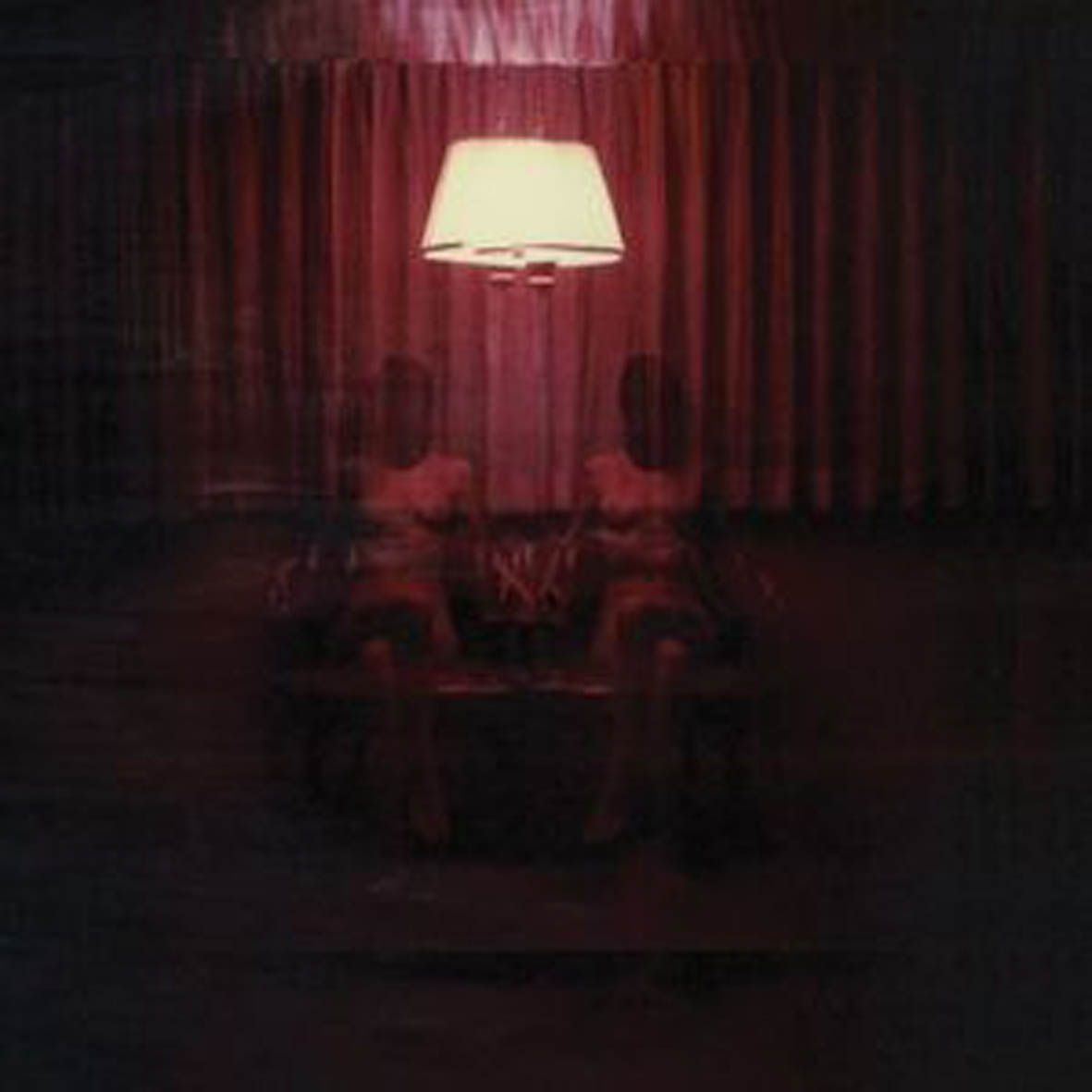 A lot of excellent music has come from the recent spate of noise musicians turning beat-ward, but there are a number of comparatively underappreciated and overlooked techno artists like Perc and Ancient Methods who have been producing similarly scary and crushing industrial dance music all along.  One of the best is Berlin's Kareem (Patrick Stottrop), who has reanimated his dormant Zhark Recordings label with this four-song salvo of bludgeoningly heavy beatscapes.  I am not sure that this is necessarily Kareem's finest release ever (people love Druids), but it is unquestionably a seriously strong contender.
A lot of excellent music has come from the recent spate of noise musicians turning beat-ward, but there are a number of comparatively underappreciated and overlooked techno artists like Perc and Ancient Methods who have been producing similarly scary and crushing industrial dance music all along.  One of the best is Berlin's Kareem (Patrick Stottrop), who has reanimated his dormant Zhark Recordings label with this four-song salvo of bludgeoningly heavy beatscapes.  I am not sure that this is necessarily Kareem's finest release ever (people love Druids), but it is unquestionably a seriously strong contender.
Kareem's objective is instantly and admirably clear from the first seconds of The Sky Is Gone: get in; administer a thumping, hypnotically pulsing, no-frills pummeling; and then get out.  The opening title piece makes for an especially bracing, unambiguous statement of intent, as Stottrop weaves a vibrant, shifting percussive assault with nothing more than an omnipresent thump, some machine-like hum, some ping-pong-esque clattering, and a host of well-placed percussive flourishes.  Nothing even remotely melodic ever appears, but Kareem is so deft at adding and subtracting elements to the beat that it never becomes boring.  It also helps immensely that he knows when to stop−none of these four pieces ever drag or wear out their welcome and 25 minutes is an ideal length for such a focused, punishing, and unmusical aesthetic.
The remaining three songs hew very closely to the template laid out by the opener, offering up similarly machine-like variations on its unrelenting beat.  The following "Wildpitch, I Think I Love You," however, embellishes the formula a bit with some subtle late-song synth brooding to evoke images of a haunted factory.  "Divine Hunger" offers up its own small variations, submerging the bass drum, playing up the clattering ping-pong percussion, and enhancing it all with sputtering and crackling short-wave radio transmissions that call to mind an abandoned and remote military base.  The EP concludes with the slower, more skittering "Ligeria," which gradually adds breath-like industrial pulses to build into a slow-burning bit of dystopian sci-fi ominousness, resembling nothing less than the slow advancing of a vague mechanized horror.
If The Sky Is Gone can be said to have any flaws, they are entirely willful: there is not much here that Esplendor Geométrico was not doing 20 years ago and Kareem’s focus is unapologetically narrow.  In lesser hands, that would be fatal (or at least very dull), but Stottrop’s execution is perfect–these pieces work (and work beautifully) because they are lean, visceral, and assured.  Fans of artists like Container and the more beat-oriented side of the Hospital Productions milieu will not want to miss this.
 
Read More
- Administrator
- Albums and Singles
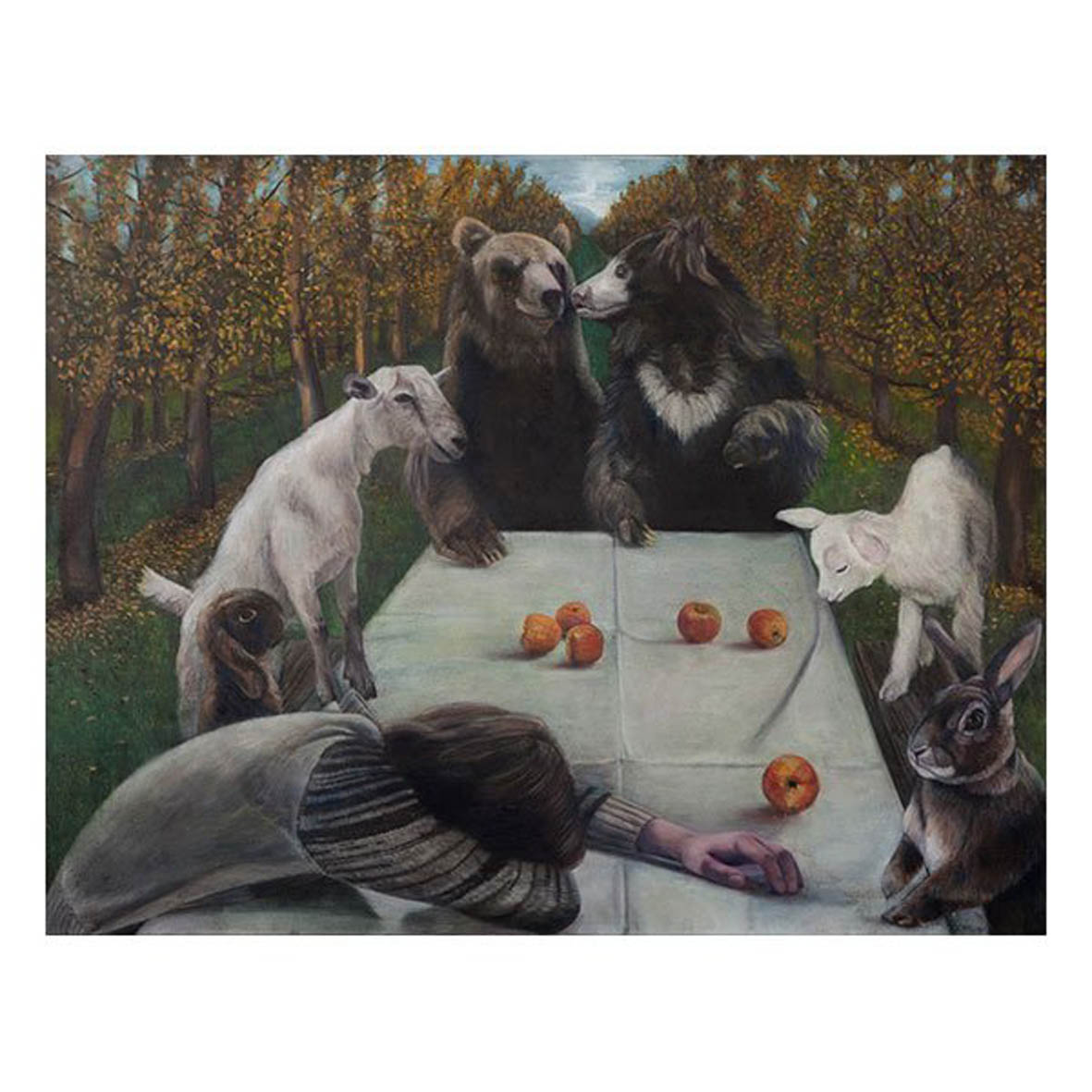 It has been five years since Benjamin Finger released his masterpiece, 2009's Woods of Broccoli, which makes it as good a time as any for him to release a thematically similar successor.  Though not quite a full reprise of Woods' lushly hallucinatory aesthetic, The Bet's warped piano-and-sound-collage miniatures make for yet another warmly beautiful trip down the rabbit hole.  Nobody does fractured dreaminess better than Benjamin Finger.
It has been five years since Benjamin Finger released his masterpiece, 2009's Woods of Broccoli, which makes it as good a time as any for him to release a thematically similar successor.  Though not quite a full reprise of Woods' lushly hallucinatory aesthetic, The Bet's warped piano-and-sound-collage miniatures make for yet another warmly beautiful trip down the rabbit hole.  Nobody does fractured dreaminess better than Benjamin Finger.
Now that I have heard The Bet and have the benefit of hindsight, last year's comparatively simple and Satie-esque Listen To My Nerves Hum makes a lot more sense to me.  I now realize that it was not a departure or divergence from the abstract psychedelia of Finger's earlier solo work, but merely a rather unexpected bridge to the next frontier in abstract psychedelia (this one).  More succinctly: The Bet reprises Finger’s recent fascination with fragile, melancholy piano motifs, albeit in altered form.  Initially, the change is not especially profound, as the opening "Faintheadedness" merely adds some watery reverb to Benjamin's quiet plinking, but The Bet is an album of escalating weirdness and it does not take long before anything recognizably Satie-esque starts to drift in and out of focus, sound stretched, or sound like time has stopped cooperating entirely and caused a single snippet to keep piling up on itself.
Of course, the pianos are not the weirdest part of The Bet by a long shot, though I do not think the album becomes fully unstuck from reality until the fifth song, "Bad-Luck Planet."  I use "song" in the loosest way possible here: things like hooks and structure are but distant specks in Finger's rearview mirror these days.  I actually mean that as a compliment, as The Bet's warmly hallucinatory dream-soup is simply not a place where fully formed, graspable things can or should exist. What exists instead are mere snatches of hooks and beats amidst an increasingly fluttering, burbling maelstrom of skipping loops, distant voices, beds of lovely wordless female singing, snippets of radio, and fragments of tinkling piano.  Despite that, a few songs still manage to stand out a bit, primarily those parts with some hint of menace, like the eerily plunging strings(?) near the end of the aforementioned "Bad Luck Planet."
I am also especially fond of the dissonantly droning strings and industrial pulsing in "Care in Motion," but The Bet is truly an album that is meant to be experienced as a whole.  The gradual journey into Finger's shifting alternate dimension of gibbering, surreal lunacy mingled with delicate beauty is the real attraction here–not any of the specific stops along the way.  That said, all of the individual pieces are almost invariably quite good (though the ephemerally brief "Faintheadedness" does not linger long enough to make much of an impression).  And even when they seem weak, the offending part generally transitions into something better so quickly that it is immediately forgotten.  Does that make The Bet yet another masterpiece?  I am not sure.  I think I still prefer Woods of Broccoli (I like songs sometimes), but The Bet may very well be a cut above in regards to artistry, sophistication, and vision.  Regardless, it certainly is a wonderful and unique album, as well as a very promising contender for "best headphone album of 2014."
 
Read More
- Administrator
- Albums and Singles
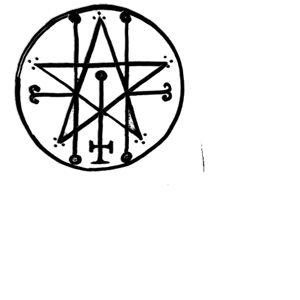 Over the span of a far-too-short 20 minutes, Ritual Howls manages to plow through a variety of styles that all rank amongst my favorites, with a lo-fi level of production that would make any "true kvlt" black metal band jealous. Even with all this ugliness, however, the material is more memorable than dissonant and at times leans into true song structures that are more memorable than what similar artists usually do.
Over the span of a far-too-short 20 minutes, Ritual Howls manages to plow through a variety of styles that all rank amongst my favorites, with a lo-fi level of production that would make any "true kvlt" black metal band jealous. Even with all this ugliness, however, the material is more memorable than dissonant and at times leans into true song structures that are more memorable than what similar artists usually do.
Opener "Turkish Leather" is the most conventional of the three on this tape.Via chiming guitar repetition, fragile drum machine and reverb encrusted vocals, it could almost be a lost, independent-era Sisters of Mercy demo that slowly builds to a fully fleshed out, dramatic conclusion.Appropriately histrionic, yet mired in cheap four track production values, it is one of the times that I feel the murkiness hurts, because I would love to hear what a more polished mix of this song would sound like.
The shorter "Scent of Skin" goes less for drama and more for punk, with a significantly higher energy level propelled by barely controlled guitar squalls and a rapid fire machine gun beat.The aforementioned nastiness helps here, giving it an appropriate level of grime and chaos fitting for the song.The lengthy "Laugh at the Moon" excises even more of the musicality into a junky, old school industrial realm.A deep oil drum rhythm pops up early on, but the remaining instrumentation is all trashy rhythms and shitty effects, but in the best possible way.At times resembling a more fleshed out early SPK or a less syntheticEsplendor Geometrico, it all comes together delightfully, aided by a perfectly distorted bass guitar.
There seems to be an identity crisis going on here, as Ritual Howls jumps between styles that are only loosely tied to one another, but each song is done so well, it is not a detriment at all.While I would prefer to hear "Turkish Leather" presented as a more polished, conventionally death rock song, it is still great in this rawer form, and the two remaining pieces benefit from the DIY production values. My biggest gripe is that there simply was not enough here, as the tape was over far too early for my liking.
samples:
 
Read More
- Administrator
- Albums and Singles
 This is the solo debut from Burch, who is probably best known for being the man behind The Spring Press label. Using a palette of consisting primarily of acoustic guitars and modular synths, Jeff offers up two very different long-form pieces.  While the lazily drifting ambience of "The Nine Points" definitely misses the mark for me, the jangling, mesmerizing psychedelia of the closing "La Perouse" is intermittently spectacular.
This is the solo debut from Burch, who is probably best known for being the man behind The Spring Press label. Using a palette of consisting primarily of acoustic guitars and modular synths, Jeff offers up two very different long-form pieces.  While the lazily drifting ambience of "The Nine Points" definitely misses the mark for me, the jangling, mesmerizing psychedelia of the closing "La Perouse" is intermittently spectacular.
For all its faults, "The Nine Points" is initially quite a fine piece, as it opens with a single repeating acoustic guitar strum beneath a languorous and melancholy saxophone melody courtesy of guest Marcus Whale.  While I cannot say that I am a big fan of subdued, melodic saxophone playing in general, it works well within its context, as Burch gradually doubles the acoustic guitar with a distorted electric one and some massing swells of feedback begin to hang in the periphery.  It makes for excellent headphone listening once it all coheres and the endlessly repeating strum keeps a pleasantly hypnotic pulse.  If the piece had continued to blossom in that vein, I suspect I would have liked it a lot.  Unfortunately, the strum fades out around the 8-minute mark and "The Nine Points" segues into 10 minutes of gently drifting serenity that sounds like a handful of uninspired improvisations stitched together into an unnecessarily long, meandering multi-part epic.
In contrast, "La Perouse" is instantly distinctive, focused, and propulsive, as Jeff weaves a loopy, off-kilter groove from a simple insistently repeating motif, a couple of chords, and some toms and tambourine from guest percussionist Stephen James.  Gradually, the charmingly stumbling rhythm gains momentum and Burch, James, and Psychic Ills' guitarist Tres Warren do their best to keep it in a deliciously unpredictable state of flux, offering up vibrant eruptions of guitar snarl and cymbal flourishes.  Curiously, however, it all gets sucked into a black hole of metallic grinding and howling feedback around the half-way mark and re-starts as fairly static soundscape of chirping and whining modular synthesizers.  While I actually like both the chirping and the accompanying cymbal shimmer just fine, the transition stops the song’s momentum dead and maddeningly dilutes an otherwise flawless, wonderful, and hypnotic piece.
While I am sure that Jeff constructed the album the way he did for a reason, his questionable compositional choices undermine the album in an exasperatingly fundamental way for me.  As a result, this effort far more promising than it is successful: there are certainly some excellent and striking ideas executed beautifully, but they tend to be blunted by too-long songs and over-ambitious structures.  On the bright side, this album can at least boast a 7 ½ minute stretch of near-perfection, which is something that few other releases this year are likely to deliver.  It also boasts some very cool cover art from Roni Horn.  You cannot lose with owls.
 
Read More
- Administrator
- Albums and Singles
ExcitoToxicity: The third studio album release from Nurse With Wound and Graham Bowers
ExcitoToxicity ... an excess of most things, both mentally and physically, although exciting and pleasurable, can easily accelerate and rapidly become toxic ... on a cellular level, deadly.
We have thrown caution to the wind and gone overboard on the quality of the 8 Panel DigiPak artwork design and packaging for this release ... why? ... Graham liked all Steven's proposed paintings for the album ... so
Steven decided we should feature them all ... on a heavy board in full gloss, on a matte background.
The pre-release has been limited to a quantity of 100 and contains a unique and individual printed insert of one of Steven's featured paintings, it takes the form of an unusual post-card, stamped with stamps of the world, franked, signed and numbered by Steven and Graham.
Please visit www.red-wharf.com for audio excerpts and further details.
http://www.youtube.com/watch?v=IPMAXm-Q4P4&authuser=0
Read More
- Administrator
- Albums and Singles
Reveries is the first collaborative effort of Noveller & TQA, two critically acclaimed lonesome composers welcoming us to an expanded guitar-based journey. Noveller is the solo project of Brooklyn-based composer Sarah Lipstate while Thisquietarmy is Eric Quach, unstoppable globetrotting musician from Montreal. Both use the guitar as their main instrument, creating some of the most impressive, hypnotic and rich-textured electric guitar works from the past years.
Empty architecture, luminosity, rocks and deserted zones. Somewhere between Antonioni's Zabriskie Point and Tarkovski's Stalker, there is a walk, a wait and an epiphany.
It happened. You were not there. You just read it. Or maybe it's the synopsis of it. It's written on the back cover of a dog-eared paperback that girl with the golden cap lost in the train you were just in. She was in a hurry. You'll never know its end, you just have to stick to the rocks and to the music.
Tomorrow is another day and tonight might be the night.
Recorded in January 2013 at Electric Blue Studios in Brooklyn, this new long player finds Sarah & Eric at their most luminous and aerial state, writing together layers of blissful drones resulting of a highly meditative and emotional four-parts piece.
More information here.

Read More

